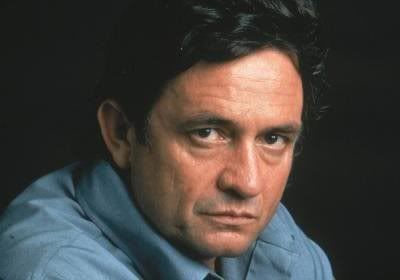
by
Richard O'Donnell
Johnny Depp is a brave man. In an age where bravery is hard to find, let alone name, Johnny Depp is a brave man that has touched my heart specific. He has reached out and taken a single finger and gently brushed it against the beating of my spirit. He has done this as a writer. He has done this as an actor. He has done this as a director. But more importantly, he has done this as a man.
The Brave, written by Paul McCudden, Johnny Depp, and D.P. Depp (based on the novel by Gregory McDonald,) and nominated at the Cannes Film Festival for a Golden Palm for Depp's performance, reveals a world of poverty that we would rather forget about. Poverty that far exceeds material possessions but evolves into a deficiency of the human spirit; exhausted through years of oppression and then neglect. Whether that poverty touches a Native American named Raphael (Depp's Character) or a Mexican named Luis (Luis Guzm's character), it seeps into the soul and inevitably alters the mind like a bitter and dangerous drug.
Poverty is something most of us will never endure, and so to see it on the screen in front of us is as distant and incomprehensible as the violence also dripping crimson from the screen these days. Unless you've sat in a ramshackled trailer wondering how to feed your family while thinking prostitution might be a viable alternative to minimum wage, a film like The Brave is a far-flung pill to swallow. We just don't get it. We view it simply as a movie to be critiqued alongside King Kong and the 40 Year Old Virgin. A better life has made us jaded and somewhat numb around the edges.
The story is straightforward and sadly sinister, whereby a forlorn Native American Indian living on a garbage-heap/trailer park with his wife and kids agrees to be tortured to death for fifty thousand dollars. Marlon Brando is McCarthy, the philosophical producer of "snuff" films, delivering a performance reminiscent of Colonel Walter E. Kurtz in Coppola's Apocalypse Now. Director Depp has allowed the camera to seize what few really understood about Brando's acting technique: simply let the camera roll and it will capture a performance that is both original and profound. McCarthy is a fiend; an angel of death with real tears in his eyes as he delicately explains how suffering excruciating pain until death is a testament to one's worth. He is no different than a pornographer defending their occupation to exploit the sufferers of sexual misconduct. That is the McCarthy character, a man who takes advantage of the wounded and victimized. Deep down, he despises all human beings, and ultimately himself.
There are wonderful scenes, touching scenes, humorous, and deeply tragic as Depp allows us to watch unencumbered by traditional tricks-of-the-trade. What's left to see and experience is an eclectic community on the brink of obliteration living in the moment and dancing recklessly on and on. There is no glamour, no Hollywood sugarcoating, just the raw visual examples of everyday people trying so desperately to endure.
Some of my favorite moments where between Raphael and Father Stratton. Passionately portrayed by Clarence Williams III, an actor of extraordinary depth (and highly underrated), his being embodied the enormous struggle any organized religion has in helping the poor carry on, to endure through faith and assured salvation. Confined by the doctrines of the church promising an afterlife of true riches, Father Stratton can only give words that serve as Band-Aids on his parishioner's ripped and bleeding souls. For he too is neglected, on hands and knees scrubbing his pews that in the city not far away would be taken care of by scores of altar boys. Sadly-money rules in all places, even sacred.
Johnny Depp is a brave man, and his film a small and mighty testament to his valor. It is, as it may be with many a great artist's work, an uncomfortable reminder that we all walk the thin blue line, and that poverty and despair can tap us on the shoulder at any moment, and swiftly push us to the other side. That if we should find ourselves there, living in the squalor, that we might be warriors for our families, and at all costs, willing to be The Brave.






